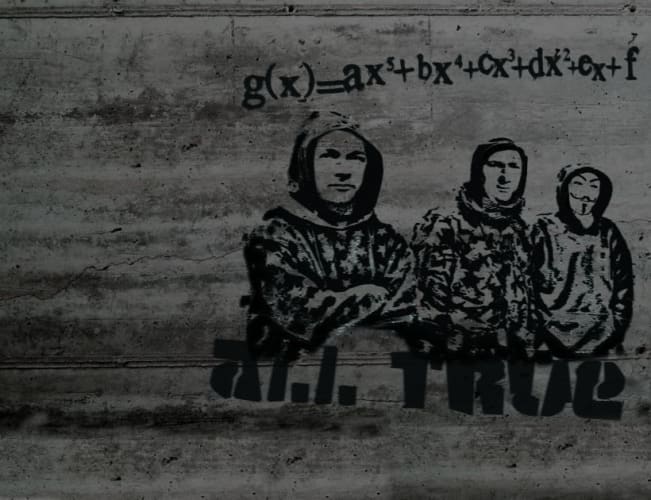"It's not a new way of thinking, it's the same way the other way round. It's not how, it's why that question has that answer?... You have to understand why it is, what it is, especially when it changes."
Perhaps for you that reasoning is clear. In the way this play expounds it, it is made to seem logical, but what is the tenet, the core belief, the basic principle that this play is about? Maybe it helps to have its long explanatory subtitle: "A True Story About the Revolutionary Politics of Telling the Truth About Truth as Edited by Someone who is Not Julian Assange in Any Literal Sense." Perhaps it is just "Tell the Truth!"
Tenet is mainly the story of Evariste Galois, a French mathematician who was killed in a duel when only 20. While still in his teens (and I quote Wikipedia) "he was able to determine a necessary and sufficient condition for a polynomial to be solvable by radicals, thereby solving a long-standing problem. His work laid the foundations for Galois theory and group theory, two major branches of abstract algebra, and the subfield of Galois connections." I hope you've got that: clearly in mathematics a man of importance, though since I never got past Archimedes' theorem and isosceles triangles I fear it still leaves me in the dark.
Greyscale is a company that like to involve the audience which it does from the start: as they enter the theatre, each person chalks a mark on the wall, an efficient way of counting the house, and then is offered tea and biscuits by Judy Ellinson. On Garange Marneur's bright red set, marked with geometrical lines which continue through furniture and objects and in perspective along black walls Jon Foster is prowling around and fiddling with things inside a red box on the central table.
We are told that they have chosen this theatre, above a pub, because it is a room where radicals can radicalise. Add Julian Assange to the equation and it looks as though we are in for some progressive politics. Politics there are but these radicals are the algebraic kind that solve mathematical problems, though you could see them as a metaphor for the need for human radicals to solve society's.
With parallel worlds in Chinese boxes getting even smaller by geometrical progression and a blackboard balanced by a whiteboard for chalking up equations, proposals and instructions they launch out into abstract algebra and then begin to tell the story of Beneviste Galois.
With Foster as Galois and Ellison telling the story as Julian Assange ("but not in any literal sense") we are taken back to another upstairs room above a Paris bookshop where Galois and other French radicals are meeting, ten to 1812, "when another Bourbon was back on the throne" (wave of biscuit). With help from the audience as fellow schoolboys, teachers, professors, judge and jury we work our way through Galois life and mathematical advances academic judges.
We were quite a long way into this process before I realised I had been here before. Under a different title an earlier version was tried out as part of the Almeida's Theatre Brothel last July. There may have been 200 shows between to cloud my memory but most of the same elements are there so why did it take me so long, even though the trappings may be different?
Perhaps it was because when seen previously, another work they played that night I found more satisfying, but I think that it is probably because the actual performance is what makes this show interesting rather than any content. The writers have developed it, added new material that brings in the current predicament of Assange and the proximity, emphasised by the geometry of the set, draws in the audience much more effectively but it depends entirely on the way the actors handle the audience that makes it work.
If it were not for the fact that Galois seems to have been a real mathematician who made a breakthrough in this area of mathematics, I might have thought the whole thing was just a dramatic construct, and since the maths goes straight over my head it might as well be, but, however bamboozling, these actors engage you and turn this into an entertaining theatrical experience. Under Lorne Campbell's direction, Tenet works from its intriguing start in a way that Rhetoric, the earlier version, didn't.
